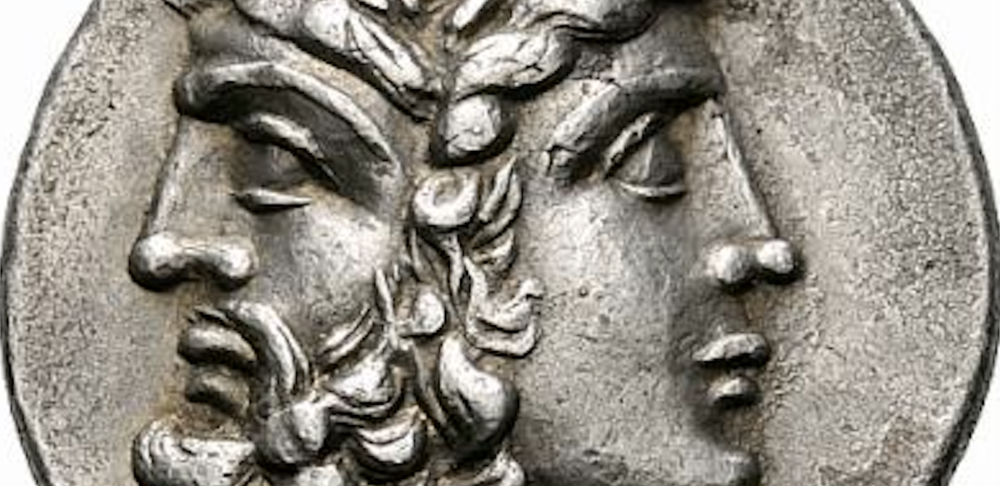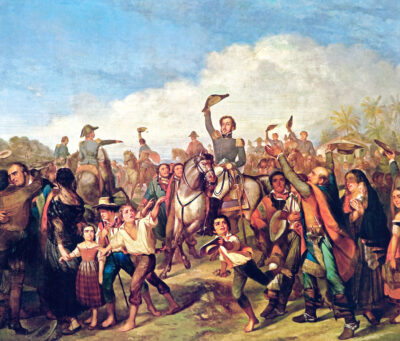As John Adams is purported to have said, the methods for conquering nations take two forms: debt and sword. [1] Though Adams said this in 1826, ancient Athenian foreign policy exemplified rule by the sword millennia earlier – as noted in Thucydides’s The History of the Peloponnesian War. By coming to the aid of distant cities, ancient Athens fought to establish military tributaries to expand its empire and influence. Mirroring Athenian culture, China chose the other side of Adams’s coin – conquering quietly, using debt instead of force. As economic interests overtake those of security in the 21st century, weaker states have become focused on who can foot the bill – not who can best protect them from foreign threats. Accordingly, the Chinese government’s strategy is simple: first, establish alliances; then, finance projects in unstable countries; and, finally, control that country through contractual coercion when it cannot repay its loans. Termed debt diplomacy, China loans foreign governments money under the pretext of humanitarian and technological aid, hoping they will fall into a “debt trap” over time, owing China more money than can be paid. Taking another page from Athens’s foreign policy book, China has been investing heavily in strategic locations that resemble Athenian tributaries. China’s diplomacy, in reality, is a calculated plan to accumulate power and establish footholds in governments to ultimately coerce foreign countries to do China’s bidding. In historical terms, Egesta was to Athens as unstable countries are to China – the only difference being Athens wielded the sword while China deploys debt.
The Athenian Way: Coercion By Sword
To understand China’s current tactics, those of ancient Athens bear explaining. From 432 to 403 BCE, the Peloponnesian War raged throughout the Mediterranean between Sparta and the Delian League. [2] Created in 478 BCE, the Delian League comprised over 300 cities bound against the Persian Empire. Initially an alliance based on equal footing, the Delian League eventually deferred to Athenian rule – sending tributes to Athens in exchange for naval protection. But over time Delian League cities grew restless, wishing to reclaim rule over their people. One of the first tributaries to buck Athens was Mytilene, a town on the island of Lesbos that believed the Athenian government was planning to exert further control over its state. [3] When Mytilene surrendered to Athenian naval power after catastrophic losses, the victorious Athenians held an assembly to discuss Mytilene’s fate. At first, the leadership agreed with Cleon’s suggestion to kill or enslave them all, but eventually settled on a lesser punishment: executing approximately a thousand revolt leaders and declaring Athenian ownership of Mytilene land, renting it back to its past-owners for profit.
On the island of Melos, Athens asserted its sword again, offering the Melians peace if they chose not to fight; massacre if they dared to revolt. The Melians declined Athens’s peace offer: fighting, and eventually losing their revolt. Athens colonized Melos, executing the men and selling women and children into slavery.
The Athenian tactic most similar to Chinese geostrategy, though, lies in Thucydides’s description of the Sicilian Expedition. Instead of revolting, a small yet strategic Sicilian city called Egesta pleaded for Athenian aid against Syracuse. As Syracuse had already conquered Leotini, a Sicilian ally of Athens, Athens had a vested interest in cutting “Syracuse down to size.” [4] Not only did Athens view Egesta as a launchpad for Sicilian-based business, but it could also divert Spartan attention and forces from other fronts.
While relatively small, Egesta was over 500 miles from Athens by boat. Arguing for Egestan aid, Alcibiades proclaimed that Greece “is scarcely armed enough for the current war” and “many foreigners… will take our [Athens’s] side through hatred of Syracuse.” [5] Alcibiades asserted that Athens needed Egesta – not just because it would divide Spartan forces, but also to gain potential allies and employ Sicilian men in the Athenian fight against Syracuse. Serving as a stepping stone to establishing allies in the region, Alcibiades believed Egesta was central to asserting Athenian dominance in the Peloponnesian War.
The Chinese Way: Coercion By Coin
Sri Lanka fills the same role for China as Egesta did for Athens. Reaching for foreign aid, each eventual tributary pleaded for a business-like transaction from Athens or China. Yet, instead of creating a mutually-beneficial agreement, Athens and China emerged as the clear winners. Because Sri Lanka is a small and unstable country, its government turned to India for an investment in the Hambantota Port Development Project. While Sri Lankan President Mahinda Rajapaksa believed that a port off of Sri Lanka’s southern coast would spur trade and economic growth, India refused to invest, citing analyses that foreshadowed the port’s failure. Moreover, India itself was not in a geopolitical position to invest. With over 70 percent of its population earning income from agriculture and an illiteracy rate of 30 percent, investing in Sri Lanka’s doomed port made little orthodox fiscal or political sense. [6] [7]
Seizing on a potential debt trap, China invested where India would not. Fully aware that the projections for the Hambantota Port were tenuous, China invested because it was searching for a strategic location in the Indian Sea – just as Athens did in the Mediterranean Sea with Egesta. Instead of investing with immediate goals to profit, China employed trade deficits to establish close connections with foreign governments to coerce them into doing their bidding in the future. The CCP thinks today as the Athenians once did in the Mytilene Debate, in which Diodotus argued: “our dispute, if we are sensible, will not concern their injustice to us, but our judgment as to what is best for us” asserting that any choice Athens makes in punishing or rewarding a country must benefit Athens. [8] Instead of getting side-tracked by short-sightedness, Diodotus contended that “what we are discussing concerns the future more than the present.” Proclaiming that destroying Mytilene would do more harm than good in the long term, Diodotus encouraged his fellow Athenians to focus on the bigger picture: building out and expanding a geoeconomic structure for sustaining Athenian power. Along the same lines, when Sri Lanka defaulted on its repayment of over $1 billion in Chinese loans, China did not go to war or ruin Sri Lanka’s economy. Instead, China forced Sri Lanka to concede 70 percent of its Hambantota Port to the Chinese government for ninety-nine years in exchange for $1.1 billion cash. [9] Yet, instead of using this cash infusion to repay Chinese debt in Sri Lanka, the Sri Lankan government prioritized paying off other debts in other countries, choosing to remain indebted to China in order to stabilize its economy.
As in the Mylenian debate, Sri Lanka only has two choices: either continue to follow Chinese protocol and lose autonomy or mimic the Mylenian spirit and rebel, leading to a possible cratering of its economy (and perhaps, consequently, the current regime’s hold on power). As debt or sword forces governments to make quick decisions to save their regimes and economies, Sri Lanka mirrors Egesta’s decision to move into the orbit of a regional hegemon’s safety and financial muscle. In ancient Greece, Egesta believed the stronger its alliance was to Athens, the less it would need to worry about Sparta. Exacerbating the situation further is the imminent threat that China will turn the Hambantota Port into a military base – a decision the Chinese government can make by dangling debt relief over Sri Lanka’s head.
While the Sri Lankan government is attesting that the Hambantota Port will remain military-free, Sri Lanka’s ever-increasing debt burden may not give it a choice. Both Sri Lanka and China made a good deal, even if China engineered the agreement. Sri Lanka gained a partner that could provide direct foreign investment, and China acquired a naval base – or at the very least a watchtower just 10 nautical miles from one of the world’s busiest waterways.
China’s Ascendant Economic Empire, A Sluggish Western Counter
Chinese investments in Sri Lanka are less the exception than the rule across the developing world, deploying calculated influxes of cash across Asia, Africa, and South America. The CCP’s Belt and Road Initiative was devised to expand Chinese power – figuratively and literally indebting countries to the CCP. [10] As seen in Sri Lanka, China first identifies weak powers and invests large sums of money with high-interest rates. Then, foreign governments become dependent on Chinese financing and, in turn, can be coerced into action. [11] Yet, contrary to common perceptions, these modern tributaries are not naive. Instead, weak countries knowingly accept shady deals – acquiring aid from foreign countries because they do not have a choice. Sri Lanka was not tricked into an investment with China; its government understood that in order to rescue the failing economy it needed cash – and quickly. With nowhere else to turn, Sri Lanka’s government willingly surrendered control of the Hambantota Port to pay off its debts. And China, ever-cognizant of Sri Lanka’s economic struggles, was ready to take advantage.
Chinese foreign policy is not bound to short-term profitability; instead, it is grounded in a long-term power quest. While China’s Belt and Road Initiative might ‘fail’ in Western terms, its success for the CCP depends on how it can manipulate foreign governments into doing its bidding. Aware the Hambantota Port would fail, China consciously invested to secure its position in the Straits of Malacca, especially as Indo-Chinese tensions heighten.
Controlling governments through destined-to-fail dealings is especially prevalent in Africa, particularly as China has become its dominant trading partner. A haven of natural resources, Africa has been a key target of Chinese investment for years. Although China alleges it will provide debt relief, African debt to the Chinese government continues to mount. But even if China makes good on its debt relief promise, the trade-offs would be in the interest of the Chinese government and could limit true market development and democratic control for years to come. An example is Kenya’s Mombasa Port, which was offered as collateral if Kenya was unable to pay China’s $3.3 billion loan for its Standard Gauge Railroad. [12] The loss of Mombasa’s Port could prove catastrophic to Kenya but help create the worldwide empire China yearns to be. Another example is China’s investment in the East African Community Rail Network, which the CCP decided to invest in after economic forecasts suggested that the railroad across Kenya would be unprofitable.
Yet, well-known locations like Kenya’s and Sri Lanka’s ports conceal the true extent of Chinese influence. The Chinese government even infiltrated Taiba Ndiaye, Senegal – a small town of approximately 8,000 people where I lived for seven months. Like Athens to Egesta, China is focused on the long-term benefits of aiding small towns like Taiba Ndiaye, hoping to secure growth there in the coming years. On the town’s sole paved road was a TV Network Station – surrounded by a guarded wall and brightly painted with the Chinese flag and large red letters reading “Paid for by the Chinese Government” in French. Chinese investment in this small village seemed unlikely; yet, there it was. By establishing strong economic footholds in otherwise neglected areas, China is embedding its influence in local governments, deploying quiet debt over the Athenian sword.
The West’s inaction is partly to blame for the crisis. Unwilling to combat Chinese financing with its own, the West has become complacent in its economic and democratic pursuits. [13] While the United Nations and its Security Council pride themselves on being ideologically sound, they often do not take action. Despite waving reports at the UN or making proclamations for genocide intervention, collective foreign policy does not happen unless a bellwether nation is determined to lead the effort. When Athens saw an opportunity for power in turning the equality-based Delian League into an Athenian-run one, they took it.
With no country stepping forward, China is taking the same advantage that Athens did, and, worse yet, the United States is letting it happen. Instead of investing in weak states, the Americans spent the last decade proclaiming “America First,” slowly adopting an isolationist policy to combat growing international power. But contrary to bolstering the American economy, the U.S. government’s absence enabled a new superpower to emerge: China.
While Sparta attempted to counter the growth of Athenian power, the US and the Western World have turned to vague threats and warnings to scare unstable countries – a response that historically has minimal effect on Chinese-indebted governments. While the United States may be finally catching on, its small steps may be insufficient. In a scramble to assert its power, the Secretary of State Mike Pompeo flew to Sri Lanka in October 2020 to deliver an in-person warning about the consequences of colluding with China. [14] Yet, without the West stepping up to help Sri Lanka, these baseless threats from the United States mean little. What Sri Lanka needs is financing: something the West is not providing. Embracing a holier-than-thou attitude, the West has become complacent, blinded by its stubborn attachment to ‘free markets’ and ‘democracy.’ The narrow vision that Washington and Western capitals have established has limited the West’s impact in the world, creating preconditions to invest. Consequently, Chinese and weak state relations will continue to get stronger, especially as they turn to China for aid.
Whether through debt or sword, Athens and China secured long-lasting footholds in foreign governments. As China establishes alliances and captures more countries through debt diplomacy, the future is looking grimmer and grimmer for democracy. Although China’s policies have not changed in recent years, its perception in many developing countries has – and for the better. [15] While it remains to be seen how this changes in the wake of the Covid-19 and ongoing investigations into the Wuhan labs, global views have historically trended upward, especially in weak states benefiting from China’s investments. A 2016 study stated that “the influence of China’s economic activities is overwhelmingly seen as positive in West, Central, and East Africa.” [16]
Across every continent but Antarctica, Chinese thought and language are already impacting governmental affairs, sweeping from Chile to Australia. China’s hold over foreign ports, raw materials, and money could coerce governments to adopt Chinese practices or force them to take China’s side on global issues. The influx of China’s debt diplomacy practices is only growing, potentially creating catastrophic results for democracies or inciting a war in the coming years. Only through deliberate action can the Western World halt the development of Chinese tributaries – a task it should not undertake in the same way Sparta did centuries ago.
Eleanor Ross is a member of the AHS Chapter at Duke University, where she studies international affairs.
–
Notes:
[1] Maria Abi-Habib, “How China Got Sri Lanka to Cough Up a Port,” The New York Times, 22September 2018, http://www.nytimes.com/2018/06/25/world/asia/china-sri-lanka-port.html.
[2] Mark Cartwright, “Delian League,” Ancient History Encyclopedia, 4 March 2016, http://www.ancient.eu/Delian_League.
[3] Thucydides and Paul Woodruff (ed.), On Justice, Power, and Human Nature: Selections from the History of the Peloponnesian War (Indianapolis: Hackett, 1993), 66.
[4] Thucydides and Woodruff, 111.
[5] Thucydides and Woodruff, 119.
[6] Coury, Galadriel, “Soil Degradation and Crippling Debt: The Agrarian Crisis in India.” Harvard International Review, 5 April 2020. https://hir.harvard.edu/agrarian-crisis-india/#:~:text=In%20India%2C%20over%2070%20percent,risky%20and%20potentially%20dangerous%20business.
[7] Singh, Anisha, “International Literacy Day 2019 Today; Figures On Language And Literacy In India,” NDTV.com, 8 September 2019, https://www.ndtv.com/education/international-literacy-day-2019-figures-on-language-and-literacy-in-india-2097323.
[8] Thucydides and Paul Woodruff (ed.), On Justice, Power, and Human Nature: Selections from the History of the Peloponnesian War (Indianapolis: Hackett, 1993), 66.
[9] Maria Abi-Habib, “How China Got Sri Lanka to Cough Up a Port,” The New York Times, 22 September 2018, http://www.nytimes.com/2018/06/25/world/asia/china-sri-lanka-port.html.
[10] Andrew Chatzky and James McBride, “China’s Massive Belt and Road Initiative,” (New York: Council on Foreign Relations, January 2020), http://www.cfr.org/backgrounder/chinas-massive-belt-and-road-initiative.
[11] Esther Pan, “China’s Soft Power Initiative,” (New York: Council on Foreign Relation, May 2006), http://www.cfr.org/backgrounder/chinas-soft-power-initiative.
[12] Jonathan Hillman, “Game of Loans: How China Bought Hambantota,” (Washington, DC: Center for Strategic and International Studies, April 2018), http://www.csis.org/analysis/game-loans-how-china-bought-hambantota.
[13] Aditi Taswala, “Peeking Behind China’s ‘Debt Trap Diplomacy’ in Kenya and Sri Lanka,” The China Guys, 24 September 2020, https://thechinaguys.com/peeking-behind-chinas-debt-trap-diplomacy-in-kenya-and-sri-lanka/.
[14] “Pompeo Slams ‘Predator’ China on Sri Lanka Trip,” Al Jazeera, 28 October 2020, http://www.aljazeera.com/news/2020/10/28/pompeo-slams-predator-china-on-sri-lanka-trip.
[15] “China’s growing presence in Africa wins largely positive popular reviews,” (Accra, Ghana: Afrobarometer, October 2016), https://afrobarometer.org/sites/default/files/publications/Dispatches/ab_r6_dispatchno122_perceptions_of_china_in_africa1.pdf
[16] “How Are Global Views on China Trending? ChinaPower Project.” Center for Strategic and International Studies, 26 August 2020. https://chinapower.csis.org/global-views/.
Image: “Greek Silver Tetradrachm of Tenedos (Mysia, Islands off Troas), a Wonderful Janiform Head of Zeus and Hera” by Exekias, retrieved from https://www.flickr.com/photos/48531100@N04/5532538313, used under Creative Commons Attribution-NonCommercial-NoDerivs 2.0 Generic license (http://creativecommons.org/licenses/by-nc-nd/2.0/).
Your support is critical to our programming on college campuses and in cities across the country. Donate $50 and you will receive a printed copy of The Hamiltonian.



